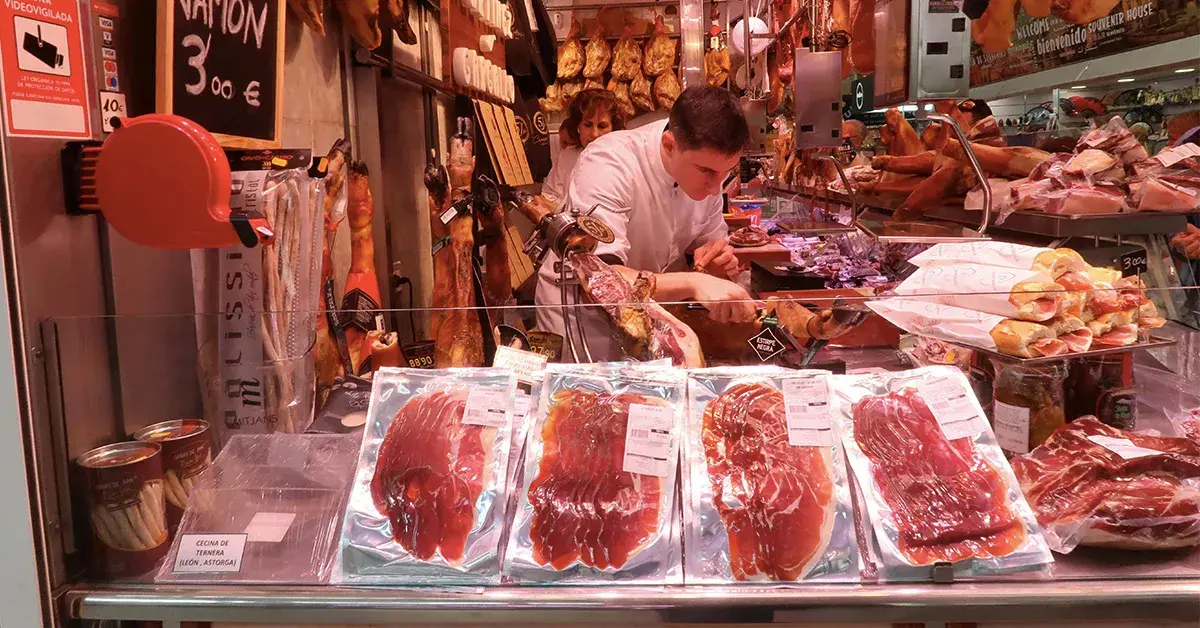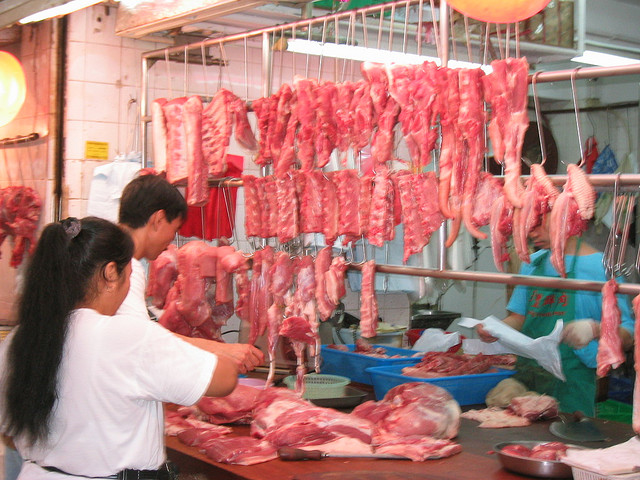Discover the Benefits of Supporting Your Neighborhood Meat Market for Freshness
Supporting your neighborhood meat market provides an engaging opportunity to boost the high quality of your dishes with unmatched quality. By sourcing directly from neighboring farms, these markets not just supply meat that is more savory and healthy, but they additionally promote links in between customers and local manufacturers. This relationship contributes to sustainable practices and a robust regional economic situation. Nevertheless, the benefits prolong beyond quality and community ties-- understanding the full effect of your purchasing selections can transform your dining experience and sustain an even more lasting food system. What additional benefits await those who select to go shopping in your area?
Top Quality of Quality

Additionally, fresh meat tends to preserve more of its natural juices, causing a tender and tasty consuming experience. On the other hand, meat that has been iced up or stored for prolonged durations may shed dampness and deteriorate in quality, jeopardizing both taste and dietary material.
Furthermore, purchasing fresh meat allows consumers to evaluate and review the item firsthand, guaranteeing that they are getting meat that satisfies their criteria for high quality. This level of analysis is frequently missing in larger grocery store chains, where meat might be refined in mass and stored for longer durations. In recap, prioritizing freshness not only boosts cooking experiences however also supports much healthier nutritional options.
Supporting Local Farmers
Sustaining regional farmers is necessary for cultivating a lasting food system and improving community resilience. By picking to sustain local meat markets, customers directly add to the incomes of farmers within their region. This financial boost enables farmers to maintain their procedures, buy sustainable techniques, and produce tasks in the area.
Regional farmers typically employ environmentally accountable methods, which can lead to much healthier environments and reduce the carbon footprint connected with transporting food over long ranges (bagley meat market edwardsville il). When consumers acquire meat from regional sources, they are more probable to receive products that are fresher and devoid of preservatives, leading to much better taste and nutritional value
Furthermore, this assistance helps maintain regional farming and contributes to the growth of diverse farming practices. When farmers have the ability to thrive, they can explore heritage types and lasting farming techniques that improve biodiversity.
In addition, supporting local farmers fosters a stronger link between customers and their food resources, encouraging transparency regarding food production. This relationship grows trust and enhances the overall high quality of the food system, eventually benefiting the entire area. By focusing on local farmers, customers can play an energetic duty fit a healthier and more lasting future.
Individualized Consumer Experience
The relationship between customers and local meat markets exceeds mere transactions; it encompasses an individualized client experience that promotes loyalty and neighborhood interaction - bagley meat market edwardsville il. Clients are not just a number; they are recognized as individuals with specific preferences and demands. Neighborhood meat markets often take the time to recognize their customers, supplying customized suggestions based on past acquisitions and nutritional demands

In addition, neighborhood meat markets typically organize community events, such as cooking presentations or sampling sessions, which further customize the consumer experience - blog bagley meat market edwardsville il. These celebrations create chances for social communication and cultivate a feeling of belonging among patrons
In an age where huge grocery stores dominate the retail landscape, the distinct individualized solution supplied by neighborhood meat markets stands apart, making them a vital source for customers looking for top quality, freshness, and a strong community connection. This connection eventually causes continual commitment, strengthening the value of sustaining neighborhood organizations.
Lasting Practices
Several customers are significantly focusing on sustainability in their purchasing choices, making it essential for local meat useful link markets to adopt environmentally friendly practices. Sustainable practices encompass a variety of efforts aimed at minimizing the ecological impact of meat production and circulation. These methods not only profit the atmosphere however likewise attract an expanding group of mindful consumers.

Neighborhood meat markets usually source their items from close-by farms that make use of regenerative farming approaches. This technique can enhance dirt health and wellness, enhance biodiversity, and lower the requirement for hazardous chemicals and fertilizers. By sustaining farms that focus on animal well-being and sustainable feed techniques, local meat markets make certain that their products are not just fresh but additionally ethically generated.

Area Economic Influence
Regional meat markets play a significant role in strengthening the economy of their areas. By sourcing their items locally, these markets not just sustain regional farmers yet likewise contribute to the retention of resources within the regional economy. This develops a multiplier impact, where money invested at local organizations distributes through the area, funding various other solutions and generating more economic task.
Additionally, local meat markets usually supply job opportunity, producing work that may not just include butchering and sales, yet also logistics and monitoring. This employment is important, as it aids to decrease joblessness rates and cultivates community security. Additionally, regional meat markets tend to have a better relationship with their vendors, leading to much better quality assurance and a higher requirement of items, which attracts discerning customers.
Furthermore, by buying the area, these markets often engage in regional occasions and sponsorships, reinforcing their commitment to the location and boosting community cohesion. Eventually, sustaining local meat markets is not practically fresh, top quality items; it is a vital investment in the economic health and wellness and sustainability of the area as a whole.
Conclusion
Supporting regional meat markets dramatically enhances food high quality and promotes lasting farming techniques. The quality of meat sourced from neighboring farms not only boosts preference and dietary worth but basics also promotes stronger neighborhood ties. Customized consumer experiences better improve the shopping process, allowing for notified options that line up with private worths. Eventually, investing in regional meat markets contributes to a robust local economy and a healthier food system, benefiting both consumers and manufacturers alike.